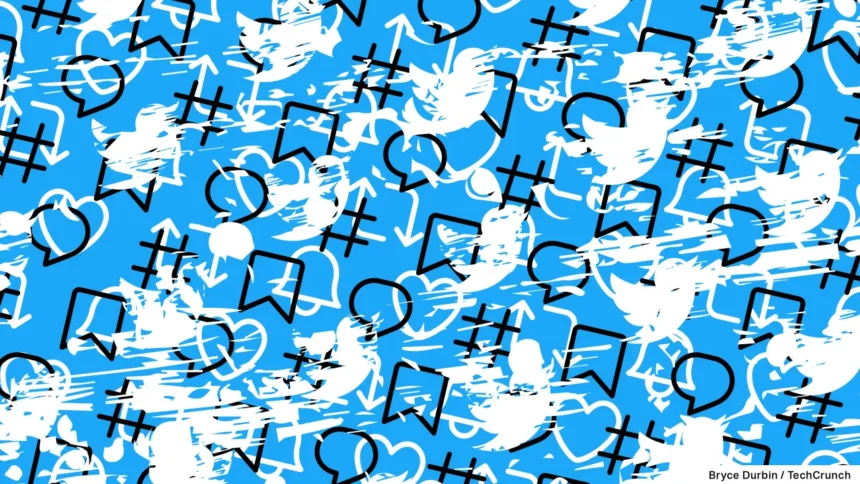Let’s be real: There’s no perfect Twitter replacement, but if you’re ready to part ways with the bird app — and we can think of plenty of reasons why you might be — there are plenty of other social apps out there that could fill the gap. Whether you’re tired of the chaos, advertisers pulling out, or the surge of unsavory content, this might be a good time to reconsider what you really want from a social network.
Twitter’s current state presents an opportunity to pause and reflect. Do we use these platforms just because they’re there and highly addictive? What do we actually get from them, especially on ad-supported platforms? Social media should serve a purpose, whether it’s growing your business, connecting with niche communities, or staying informed. It shouldn’t just be a black hole that swallows up your time.
Fortunately, there are alternatives. While none of them are a 1:1 Twitter clone, many offer experiences that might be better suited to your needs, from decentralized platforms that prioritize user control to completely different ecosystems that encourage new kinds of interactions. After all, Twitter wasn’t perfect to begin with, and even its most devoted users often had a love-hate relationship with it.
Here are some of the best alternatives worth checking out.
Threads
Launched in July 2023 by Meta, Threads has quickly positioned itself as one of the most promising Twitter alternatives. Initially, it was a bit bare-bones, but Threads has gradually added key features like trending lists and a desktop version, making it a more complete offering.
One big advantage Threads has over Twitter is its seamless integration with Instagram. You can log in with your Instagram credentials and easily follow people you’re already connected with on Instagram. The app also makes cross-posting between Instagram, Facebook, and Threads simple, which can be a major perk if you use multiple platforms.
What really sets Threads apart, though, is its integration with the fediverse — a decentralized network of social platforms that interact using the ActivityPub protocol. This means that unlike Twitter, Threads has a more open, community-oriented approach to social networking.
That said, Threads does have some limitations. While it offers a solid alternative for everyday social interactions, it’s not quite up to speed in areas like breaking news, sports updates, or real-time pop culture events. Meta has also kept a distance from politics on this platform, so if political discourse is what you’re after, you might find it lacking. Furthermore, features like long video uploads, direct messaging, and live audio rooms are still absent from Threads.
Mastodon
Mastodon has been one of the most-talked-about Twitter alternatives, and for good reason. It offers a decentralized social experience, making it less vulnerable to the whims of corporate giants or any single individual’s decisions.
On the surface, Mastodon might look a lot like Twitter. Users post real-time updates and can reshare content. However, that’s where the similarities end. Mastodon is an open-source platform, meaning that instead of one huge network with one set of rules, it’s made up of multiple smaller servers, each with its own moderation policies. This gives you more control over your experience.
Don’t like how your server is run? You can move to another one without losing your contacts. You can still follow and interact with people on different servers, making the platform both flexible and interconnected. The catch is that you’ll need to choose a server when you sign up, and that initial onboarding process can be a little more complicated than Twitter’s straightforward approach.
However, if you’re fed up with the negativity, harassment, and divisive discourse on Twitter, Mastodon offers a refreshingly chill alternative. The decentralized nature of the platform means you’re less likely to encounter the same toxic dynamics that often arise in more centralized social networks.
Bluesky
Bluesky is another rising star in the world of Twitter alternatives, and it’s no surprise — it was developed under the guidance of Twitter’s former CEO, Jack Dorsey. Like Mastodon, Bluesky embraces the concept of a decentralized social network, allowing users to create their own communities.
In terms of functionality, Bluesky offers a Twitter-like experience. You can post text and images, reply, repost, and message other users. However, Bluesky takes things a step further by letting you set up your own server and choose your own algorithm, giving you even more control over what you see in your feed.
One of Bluesky’s standout features is its flexible content moderation. You can subscribe to third-party moderation services, giving you the power to decide how much or how little content is moderated on your feed. For those new to the platform, Bluesky’s “Starter Pack” feature helps you get up and running by curating a list of interesting people and custom feeds to follow.
Like Threads, Bluesky started off with limited features, but it has since added native video support and direct messaging, making it a more robust alternative to Twitter.
Discord
Discord might seem like an odd choice for this list, but hear us out. Originally built as a chat app for gamers, Discord has since evolved into one of the best social platforms around. It doesn’t offer a traditional “public square” like Twitter, but it excels in fostering communities around specific interests and topics.
Discord operates through servers, each focused on a different community or theme. Within these servers, users can chat via text, participate in voice chats, and even share live streams or videos. Whether you want to create a private server for your friends or join one of the many massive servers with hundreds of thousands of members, Discord offers an organized and dynamic way to engage with others.
While Discord is more focused on real-time chat than posting, its server-based structure offers some of the benefits of Mastodon’s federation without the extra complexity of open-source software. And since Discord is a well-established company with a stable business model built around subscriptions, it’s unlikely to vanish like many smaller social apps have.
The downside? Discord’s chat-based nature means conversations move fast, and it’s easy to lose track in a busy server. However, Discord is actively working on features that promote more asynchronous communication, so it’s worth keeping an eye on as the platform continues to evolve.
Tumblr
Tumblr might not be the first platform that comes to mind as a Twitter alternative, but there’s a lot about it that makes it a worthy contender. Tumblr is more of a microblogging site, but its timeline-style feed of posts from people you follow will feel familiar to Twitter users.
On Tumblr, you can post a variety of content, including text, images, GIFs, videos, and more. Users can interact with posts by leaving “notes,” which are similar to comments, and they can like, share, and repost content. Tumblr even has a trending topics section and a messaging feature that mimics Twitter’s direct messages.
Tumblr has an easy setup process and is free to use, though you can pay for an ad-free experience with some additional perks. The platform has proven its resilience over the years, surviving multiple ownership changes, and continues to attract a loyal user base. Plus, its quirky humor and chaotic culture make it a unique social space that’s far less toxic than Twitter.
Final Thoughts
While there’s no one-size-fits-all replacement for Twitter, each of these platforms offers something different, and the best one for you will depend on what you’re looking for. Whether you want more control over your feed, a more decentralized approach to social networking, or just a break from the endless doomscrolling, these alternatives give you plenty of options to explore. Why not give them a try? You might just find something you like better than Twitter ever was.










